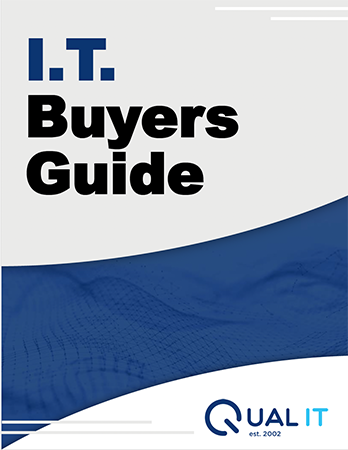 Cybercriminals Are Changing How They Target Salt Lake City's Insurance Advisors
Cybercriminals Are Changing How They Target Salt Lake City's Insurance Advisors
Let me tell it to you straight, friend:
The threat to your insurance agency isn't some hooded hacker pounding on your digital door. It's someone who already has the keys—your login credentials.
Across Salt Lake City, we're seeing a dangerous shift. Hackers aren't breaking in anymore. They're logging in.
It’s called an identity-based attack, and it’s fast becoming the #1 way insurance firms like yours get compromised. They swipe passwords through fake login pages, overwhelm your team with MFA requests until someone clicks "approve," or exploit weak spots in your IT provider's systems. And the worst part? It works.
A leading cybersecurity group recently found that 67% of major breaches in 2024 were caused by stolen credentials. Big names like Caesars and MGM fell victim. If they can get hit, what's stopping a 12-person agency in Sandy or Sugarhouse from being next?
How Are Hackers Slipping Into Insurance Agencies?
The attacks usually start small. But the damage can be enormous. Here are the most common tactics we see hitting insurance advisors around Salt Lake City:
- Spoofed login pages that look like your AMS or CRM, tricking your CSRs into handing over passwords.
- SIM swapping that lets hackers hijack your team's 2FA codes sent via text.
- MFA fatigue tactics, where your agents get bombarded with approval prompts until someone clicks out of habit.
- Vendor vulnerability exploits —if your outsourced IT provider or marketing firm isn't secure, you're wide open.
- Targeted phishing that impersonates underwriters or client service reps to trick your team into dangerous clicks.
Insurance agencies are a goldmine for attackers: rich with sensitive data, but often light on cybersecurity infrastructure. If you're running legacy AMS systems, using personal devices for work, or letting passwords stay the same for years—you're a target.
What Can Salt Lake Insurance Advisors Do Right Now?
Here's the good news, Mark: You don’t have to be an IT wizard to protect your agency. A few key moves can make a world of difference.
Turn On Multifactor Authentication (MFA)
Think of this as your agency's second lock. But not all MFA is equal. App-based or hardware token MFA is far more secure than old-school text messages. Stop relying on what's easy—start implementing what’s safe.
Train Your Team to Spot Scams
If your CSR clicks a fake email from "National Life" or "EMC Insurance" and enters her credentials? That’s all it takes. Your team needs simple, ongoing training on how to spot phishing, MFA scams, and social engineering attacks.
Practice Access Control
Your junior producer doesn’t need access to every client policy or commission report. Give your staff access to what they need and nothing more. That way, if an account is compromised, the hacker can't roam freely.
Use Strong Passwords—Or Skip Them Altogether
Encourage the use of password managers, or even better, move toward biometric logins or security keys. Every weak or reused password is a crack in your agency’s armor.
Audit Your Vendors (Including Your IT Provider)
If your outsourced IT provider doesn’t specialize in insurance, you may be trusting your agency’s most critical assets to a generalist. You need someone who understands AMS, CRM, compliance requirements, and the regulatory pressures you're under.
What’s At Stake For Salt Lake Insurance Agencies?
Let me ask you this: How would your clients feel if their personal info was leaked? Birthdates, SSNs, medical history, driver records—all out there.
One breach can cost you clients, reputation, and even your license.
The time to act is before the system crashes or the regulator calls.
The Bottom Line
Hackers aren’t breaking in. They’re logging in.
If you’re still running your agency without layered security, without employee training, and without a specialized IT partner in your corner, you’re gambling with everything you’ve built.
At Qual IT, we specialize in managed IT services for Salt Lake City insurance firms. We know your systems. We understand compliance. We handle cybersecurity, network services, and 24/7 support—so you can focus on growing your book of business.
Worried your agency might be vulnerable? Let’s talk.



